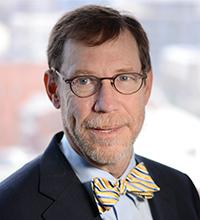A full version of this article originally appeared in WorldView, a quarterly magazine published by the nonprofit National Peace Corps Association for the greater Peace Corps community. Reposted with permission. Read the entire article here.

Economic and social progress rarely comes fast, making it easy to question whether foreign assistance is effective. Many critiques of foreign aid expose poorly conceived and implemented programs and document bad governance, corruption, and persistent poverty. Some even argue that far from helping, foreign assistance is part of the problem. I suspect there are few self-conscious development workers who don’t ask themselves whether the treasure, sweat and tears really make a difference, especially those of us who have spent years struggling with the day-to-day management problems and frustrations that come with implementing programs in countries where progress has been slow and uneven.
Recently, I visited the rural community in Swaziland where I worked as a Peace Corps Volunteer 30 years ago. Seeing the changes on the homestead where I lived from 1980 to 1983 helped me put into perspective our often-unsatisfactory efforts to describe and measure the value of development work and to answer the question about whether foreign aid makes a difference.
Read the entire article here.
Continue reading

